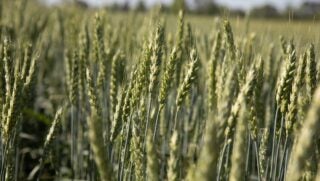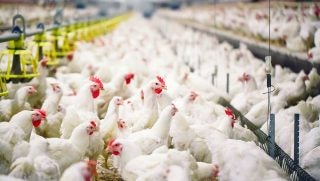Boehringer Ingelheim and the Agricultural Research Service of the U.S. Department of Agriculture are joining forces to offer veterinary students the opportunity to research diseases that could affect livestock and public health. The collaboration expands the Boehringer Ingelheim-led Veterinary Scholars Program, which has provided stipends to more than 3,500 veterinary students in the last 30 years to pursue biomedical research.
The expansion will create opportunities for up to 12 students to spend the summer at one of nine USDA sites working with an ARS scientist on a research project in livestock infectious diseases. Boehringer Ingelheim and USDA will cover all costs for the students, including a monthly stipend and costs associated with traveling to and from their schools to the USDA centers.
“ARS employs world-renowned veterinarian scientists with a broad range of expertise in infectious diseases of animal and public health concern,” said Roxann Motroni, DVM, PhD, USDA Agricultural Research Service national program leader for animal health. “This allows us to be responsive to emerging One Health disease threats by quickly implementing research needed to inform emergency response. Through this partnership with Boehringer Ingelheim’s Veterinary Scholars Program, veterinary students across the country will have the opportunity to train with these leading veterinarian scientists.”
The USDA’s funding for the program is part of the Agrosecurity Partnerships for Innovative Research, or ASPIRE platform, which aims to stimulate the entire bio and agro-defense research sector through strategic partnerships. The goal of this five-year partnership with the Veterinary Scholars Program is to enhance relationships with national and international veterinary schools by providing their students with collaborative research opportunities in ARS’s specialized facilities. These facilities include the Southeast Poultry Research Laboratory in Athens, Georgia, the National Animal Disease Center in Ames, IA and the National Bio and Agro-Defense Facility, in Manhattan, Kansas.
“The next generation of scientists tasked with protecting the agricultural industry and the U.S. food supply will need a broad array of expertise because we don’t know what the next global disease will be,” said Alfonso Clavijo, DVM, PhD, NBAF director. “By offering students experiences in biocontainment facilities, the U.S. can help develop veterinarians and prepare the nation for a multitude of animal and zoonotic diseases.”
The National Bio and Agro-Defense Facility, still under construction, will have biosafety level-2, -3 and -4 laboratories capable of holding large livestock with a mission to protect the U.S. against the threat and potential negative effects of transboundary, emerging and zoonotic animal diseases.
“In addition to developing real-world exposure to One Health — and the important intersection between animal and human health — we hope that this summer experience as Veterinary Scholars at USDA will serve as a source of inspiration for students, motivating them to pursue work that helps protect our animals, public health and the food supply,” Motroni added.
After spending the summer conducting research and learning from USDA scientists, students will attend and present their work at the annual National Veterinary Scholars Symposium, to be hosted in 2022 by the University of Minnesota’s College of Veterinary Medicine in St. Paul, Minn.
“COVID-19, African Swine Fever and other recent outbreaks and pandemics have underscored the need for increased vigilance and understanding of transboundary threats to human and animal health,” said Caroline Belmont, vice president, US Global Innovation and US Regulatory Affairs for Boehringer Ingelheim’s Animal Health business. “Today’s veterinary students will play a critical role in addressing our future challenges, and the hands-on experience, guidance and support we provide them now through the Veterinary Scholars Program — in particular, these opportunities to work with USDA researchers — represent an important investment in the future health of animals and humans.”


